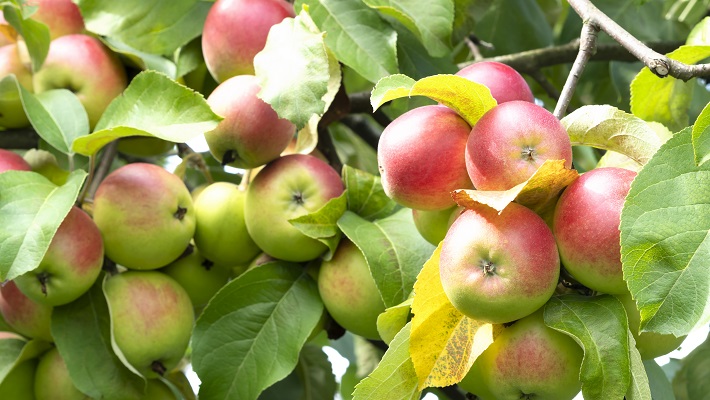South Africa Emerges As Top Apple Exporter, Displacing New Zealand

Table of Contents
South Africa's Increased Apple Production and Quality
South Africa's success in the global apple market is largely attributed to a significant increase in both apple production and the quality of its apples. This growth isn't accidental; it's the result of targeted investments and strategic improvements in apple farming South Africa.
- Investment in modern irrigation techniques: South African apple farmers have embraced advanced irrigation systems, such as drip irrigation and micro-sprinklers, leading to higher yields and more efficient water usage. This is particularly crucial in areas with variable rainfall patterns.
- Improved pest and disease management: The adoption of integrated pest management (IPM) strategies and the use of biopesticides have minimized the impact of pests and diseases on apple crops, resulting in superior fruit quality and reduced reliance on harmful chemicals.
- Adoption of advanced farming practices: Precision agriculture techniques, including GPS-guided machinery and soil sensors, are optimizing resource utilization and enhancing overall productivity in South African apple orchards.
- Focus on specific apple varieties: South African producers have strategically focused on cultivating apple varieties that are highly demanded in international markets, ensuring a consistent supply of preferred fruit types. This includes both traditional varieties and newer, genetically improved cultivars.
- Government support and incentives for apple farmers: Government initiatives, including subsidies and research funding, have played a crucial role in supporting the growth of the South African apple industry. These investments have facilitated the adoption of new technologies and practices.
New Zealand's Challenges in Maintaining its Apple Export Dominance
While New Zealand has historically dominated the apple export market, several factors have contributed to its recent decline, creating a scenario where South Africa apple exports have surged ahead.
- Impact of climate change: Climate change poses a significant threat to New Zealand's apple production. Erratic weather patterns, including more frequent extreme weather events, have negatively impacted yields and fruit quality.
- Increased production costs: Rising labor costs, increased fertilizer prices, and the rising expense of pest and disease control have significantly impacted the profitability of apple production in New Zealand, impacting its ability to compete in the global apple market.
- Rising competition from other apple-producing countries: The increased competitiveness of other apple-producing nations, including South Africa, has placed significant pressure on New Zealand's market share.
- Challenges in logistics and global shipping: Increased shipping costs and logistical complexities have added to the challenges faced by New Zealand apple exporters in getting their products to international markets efficiently and cost-effectively.
- Potential labor shortages: Labor shortages, particularly during harvest season, can disrupt the timely and efficient processing and export of New Zealand apples.
Strategic Export Strategies Employed by South Africa
South Africa's success in the apple export market isn't solely due to increased production; it's also a result of strategic export strategies implemented by the industry and government.
- Focus on diversifying export markets: South Africa has actively pursued diversification of its export markets, reducing reliance on any single buyer and mitigating risks associated with market fluctuations.
- Negotiation of favorable trade agreements: The South African government has actively negotiated trade agreements with key international partners, reducing tariffs and non-tariff barriers, providing easier access to global markets for South African apple exports.
- Aggressive marketing campaigns: Strategic marketing campaigns have effectively promoted the quality and reputation of South African apples in target markets, highlighting their superior taste and freshness.
- Investment in efficient cold chain logistics: Significant investment in cold chain infrastructure ensures that South African apples reach international markets in optimal condition, maintaining their freshness and extending their shelf life.
- Effective partnerships with international distributors and retailers: Strong relationships with international distributors and retailers facilitate the smooth and efficient delivery of South African apples to consumers worldwide.
Economic Implications of this Shift
The shift in global apple export dominance has significant economic implications. For South Africa, the increased apple exports translate to substantial increases in export revenue, supporting the livelihoods of thousands of farmers and workers in the agricultural sector. This growth stimulates job creation across the value chain, from orchard workers to processing plant employees and transportation companies. Conversely, New Zealand's reduced market share could lead to a decrease in export revenue and potentially job losses within its apple industry. The long-term effects will require careful monitoring and strategic adaptation by both countries.
Conclusion
South Africa's emergence as the leading apple exporter is a testament to its commitment to agricultural innovation and strategic export planning. By overcoming challenges and capitalizing on opportunities, South Africa has successfully displaced New Zealand in this crucial market. This shift underscores the dynamic nature of the global fruit trade and highlights the importance of adaptability and strategic investment in the agricultural sector. Learn more about the growth of South African apple exports and their impact on the global market. Stay updated on the latest developments in the South Africa apple export industry. Investigate the opportunities for investment in the burgeoning South African fruit sector.

Featured Posts
-
 Inter Miami Defeats Columbus Crew 1 0 Before Record Crowd
May 13, 2025
Inter Miami Defeats Columbus Crew 1 0 Before Record Crowd
May 13, 2025 -
 Texas Rangers Investigating Proposed Plano Islamic Center Gov Abbotts Directive
May 13, 2025
Texas Rangers Investigating Proposed Plano Islamic Center Gov Abbotts Directive
May 13, 2025 -
 The Truth Behind Kelly Ripas Absence And Mark Consuelos Reaction On Live
May 13, 2025
The Truth Behind Kelly Ripas Absence And Mark Consuelos Reaction On Live
May 13, 2025 -
 Finding Eva Longorias Searching For Spain A Viewing Guide
May 13, 2025
Finding Eva Longorias Searching For Spain A Viewing Guide
May 13, 2025 -
 Worlds Largest Car Carrier Supports Byds Launch In Five New Countries
May 13, 2025
Worlds Largest Car Carrier Supports Byds Launch In Five New Countries
May 13, 2025
Latest Posts
-
 Cybercriminal Makes Millions Exploiting Executive Office365 Accounts
May 13, 2025
Cybercriminal Makes Millions Exploiting Executive Office365 Accounts
May 13, 2025 -
 Revolutionizing Voice Assistant Development Open Ais Latest Innovation
May 13, 2025
Revolutionizing Voice Assistant Development Open Ais Latest Innovation
May 13, 2025 -
 Millions Gained From Executive Office365 Infiltration Fbi Investigation
May 13, 2025
Millions Gained From Executive Office365 Infiltration Fbi Investigation
May 13, 2025 -
 Creating Voice Assistants Made Easy Open Ais 2024 Announcement
May 13, 2025
Creating Voice Assistants Made Easy Open Ais 2024 Announcement
May 13, 2025 -
 Federal Investigation Millions Stolen Via Executive Office365 Account Compromise
May 13, 2025
Federal Investigation Millions Stolen Via Executive Office365 Account Compromise
May 13, 2025
